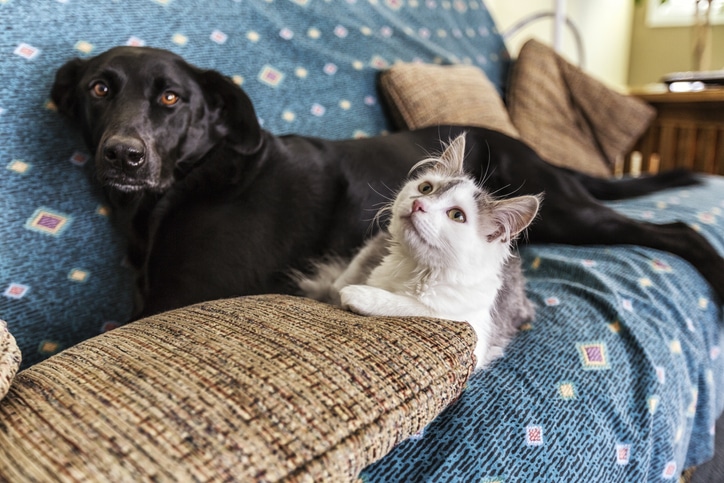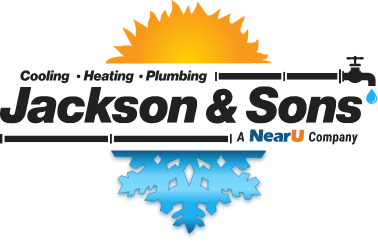
The health of our pets and air quality in our homes are connected. As houses have become more tightly sealed in recent years to conserve energy and stabilize temperatures, the enclosed environment has a tendency to accumulate indoor pollutants. Airborne particles, fumes, and toxins can rise to levels that trigger symptoms in pets. In fact, many animal species actually have greater natural sensitivity to airborne irritants than their owners do. Existing indoor issues that may affect pets include:
Cigarette smoke. It’s just as bad for animals as it is for humans.
Chemical fumes and VOCs. Disinfectants, cleaning solutions, insect spray, air fresheners, paint, etc. These substances may include volatile organic compounds that require increased ventilation with fresh outdoor air to dilute fumes. Where possible, choose household products that are certified to be low-VOC. Store chemicals outdoors in the garage or other outdoor storage area.
Mold and mildew contamination. Microscopic spores can be irritants to pet’s eyes and nose, as well as potentially triggering chronic allergic reactions if inhaled. Control household mold by keeping indoor humidity levels below 50% and identifying and promptly removing any existing contamination.
Dust and lint. Replace the home’s HVAC air filter regularly and choose filters with MERV (Minimum Efficiency Reporting Value) ratings of at least 8 to ensure adequate filtration of the smallest particulates.
The interaction between pets and air quality inside homes also occurs in reverse: Animals themselves may actually add to the level of allergens and irritants that affect their human owners. Up to 1/3 of people have a natural sensitivity to pet dander or fur. To reduce the potential for allergic reactions related to the link between pets and air quality:
- Vacuum regularly, ideally using a vacuum that incorporates HEPA filtration.
- Regularly bathe pets.
- Brush pets outdoors when possible.
- Be aware that fabric-covered furniture tends to attract and retain pet dander.
- Wash hands after contact with pets.
To keep pets, their owners and the air quality healthy, ask the experts at Jackson & Sons for more information about pets and air quality and about any other HVAC issues.

